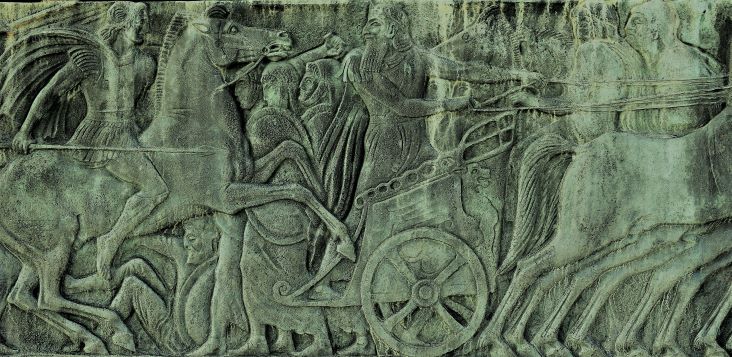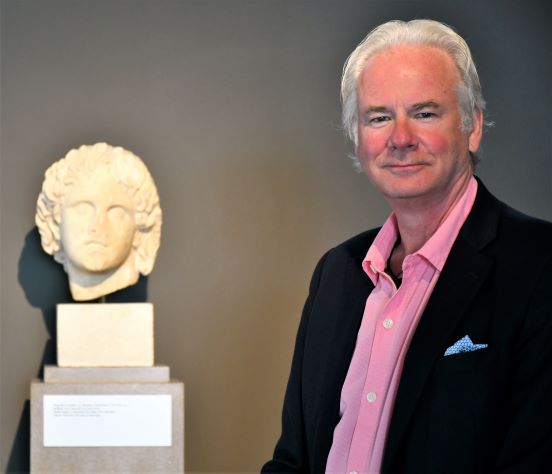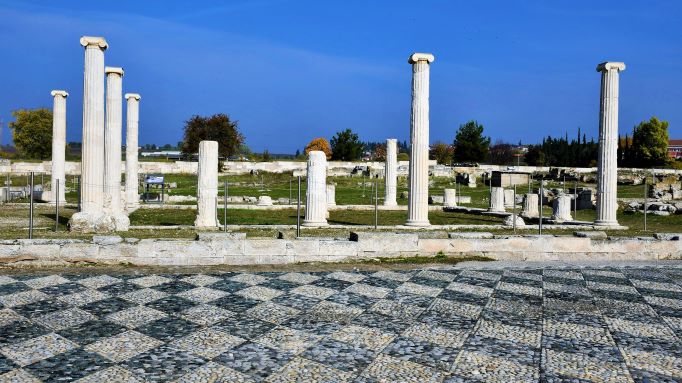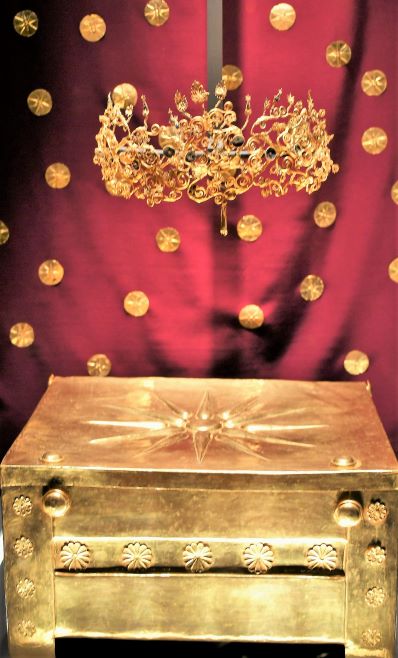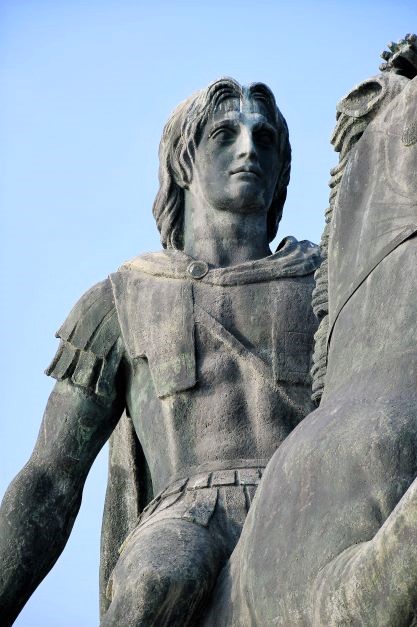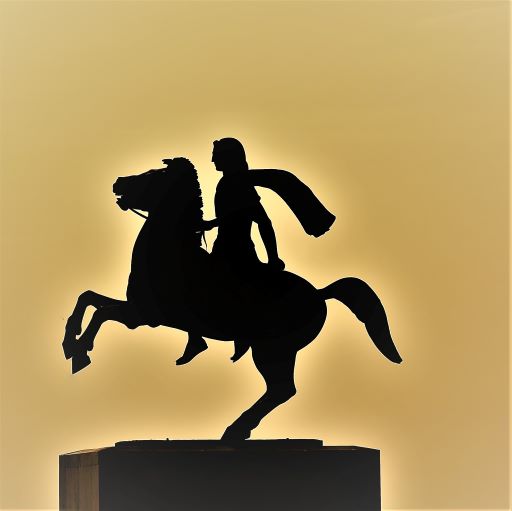Updated 12/7/2021
- Traveler • Adventurer • Author

Ostracism
December 7, 2021
Nuclear Verdicts – A Billion is the New Million With Stratton Horres and Karen Bashor, Partners at Wilson Elser and Host Richard Levick of LEVICK
December 8, 2021In The Footsteps of Alexander the Great
About Alexander
Alexander was born in Pella in June 356 BC, the son of Macedonian King Phillip II and mother Olympias. Pella was the flourishing capital city of the Macedonian kingdom at the end of the 5th Century BC. When Alexander was 13 years old, his father hired philosopher Aristotle as his tutor and he mentored him until Alexander was 16.
Alexander’s father Phillip was assassinated in 336 BC at which time Alexander ascended to the throne of Macedon. Alexander took care that his father’s burial would be the most glorious in Hellas in historical times. Today the magnificent artifacts of the burial may be seen at Vergina, including the elegant gold Larnax of Phillip and gold oak wreath shown here. Taking advantage of his father’s financial and military reforms that took place during his reign, Alexander set about carrying out his father’s plans to invade Persia in revenge for earlier Persian incursions on Greek soil.
As a leader Alexander led from the front and was always aware of his men’s thoughts and feelings and had a keen sense of what they were experiencing. Even though he was their king, he did not place his own needs above theirs and suffered and celebrated along with them. He eschewed any comfort for himself and his men followed him to the ends of the known world as a result. In fact, he never lost a battle.
Alexander did not live long enough to enjoy his many victories. At one of his many parties while preparing for yet another war to conquer the Arabian Peninsula, he came down with a fever on May 31, 323 BC. He never recovered and 11 days later he died on June 10. The Book of Daniel recorded that “the great horn is broken”, a reference to the unexpected shock of his untimely death at such a young age.

